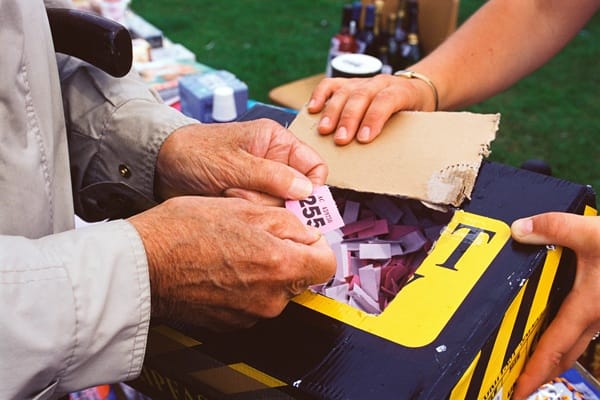Raffles have always carried a sense of anticipation, but technology has elevated that excitement to a whole new level. From mobile apps to blockchain systems, the way we participate has transformed dramatically. What was once a local tradition is now a global, transparent, and highly engaging experience accessible to anyone.
Digital shift in raffles
Raffles were things in the past. At least, that’s what you saw mostly at school fairs, in local charities, or at small community gatherings. Tickets were paper slips you dropped in a box, wishing for your number to be called. Technology has now shifted that old tradition into something much more accessible and widespread.
The transition to online platforms has made raffles accessible to people who might never have participated before. You don’t have to show up in person or wait weeks for a draw; everything is instant, from buying tickets to checking results. That convenience has pulled in demographics far beyond the usual participants.
Digital platforms have changed the way transparency is delivered. No longer are you forced to blindly trust what some voice behind a microphone at some local hall may be saying. Now you have an actual automated system or verifiable process that can remove any doubt. The raffle is more appealing than ever, all thanks to this sense of justice coupled with ease of access.
This is especially clear when looking at raffles in UK spaces, where dedicated platforms showcase the most reputable draws and simplify the process for everyday players. Lists and reviews help people choose where to participate, which further boosts trust and maintains the momentum of this digital shift.
Blockchain and fairness
Perhaps, one of the most interesting changes in raffles today is brought about by blockchain technology. With distributed ledgers, raffle operators can demonstrate that every ticket and outcome has been recorded and cannot be altered. That level of transparency leads to a feeling of security that can never be fully attained with traditional paper-based raffles.
Smart contracts bring in an additional aspect of trust. As soon as specific conditions are met, these automated agreements execute the draw, eliminating any possibility of human error or interference. When participants understand that the system will work precisely as promised it fosters confidence and helps build long-term loyalty among all those who keep coming back.
Also, trust. For years, people have played raffles because they trusted the organizer, whether it was their local club or a well-known brand. Now, with blockchain, trust isn’t based on reputation but on unbreakable code. That’s a significant advantage for digital platforms entering the market.
It also demonstrates how fairness can be a value proposition rather than just a box-ticking exercise. When people see that the process is transparent, they’re more willing to buy multiple tickets, tell their friends, and even follow future draws. Tech makes the whole thing more welcoming and trustworthy.
Mobile apps and convenience
The rise of mobile-first platforms has entirely altered how people engage with raffles. Instead of having to wait until you are in front of a computer, you can enter a draw with just a few taps on your phone. It’s that kind of accessibility that’s turned raffles into something you can engage with on the go.
Mobile apps make it simple to receive reminders about upcoming draws or notifications when results are posted. This instant communication keeps participants engaged and reduces the need for manual checking of emails or websites. It feels like the raffles have adapted perfectly to the increasingly connected lifestyle most people now lead.
Additional conveniences include digital wallets. Rather than having to find a credit card or remember long details, one can pay in seconds using Apple Pay, Google Pay, or the like. This lowered the barrier of needing an appropriate payment system and further helped raffles reach people for whom ease and a fast transaction were everything.
This mobility also extends the audience that online raffles were intended for. Many people who would not have considered buying a ticket in an offline setting are much more likely to do so if it means just downloading an app. The shift has significantly expanded the market and has been a good indicator of how digital convenience drives stronger participation.
Live streaming and engagement
Probably, the most fun thing to witness has been the live streaming of raffle draws. No more sheets being read off names or emailing results, as the entire process is now broadcast in real-time by the organizers. This, in turn, creates a shared experience for participants, who feel a sense of connection to the moment of winning.
Social media plays a significant role in boosting engagement. Instagram, TikTok, and Facebook, versus just allowing raffles to reach a much larger audience, encourage viewers to join in for the next event by sharing reactions, comments, and likes during the live draw, creating a community that feels far more dynamic.
Interactive features also play a role. One can communicate through chat boxes, reactions, or even polls built into the stream, so that participants get involved more than just sitting around waiting for numbers to pop up. This transforms raffles from just an activity to a genuine event that is more of an entertainment experience with live involvement from people across the globe.
The live raffles breed a sense of community that is very intangible. Most people watch because of the prizes as well as the vibe and shared enthusiasm. This, over time, creates brand loyalty for the organizers and adds value to the overall raffle experience in ways that go way beyond winning.
Conclusion
The raffle industry shows how tradition and technology can blend seamlessly. Digital tools have brought transparency, creativity, and convenience, while preserving the thrill of winning. As innovation continues, raffles will remain a fun, trustworthy, and engaging way to connect people with prizes and shared moments of excitement.
Please play responsibly. For more information and advice visit https://www.begambleaware.org
Content is not intended for an audience under 18 years of age








